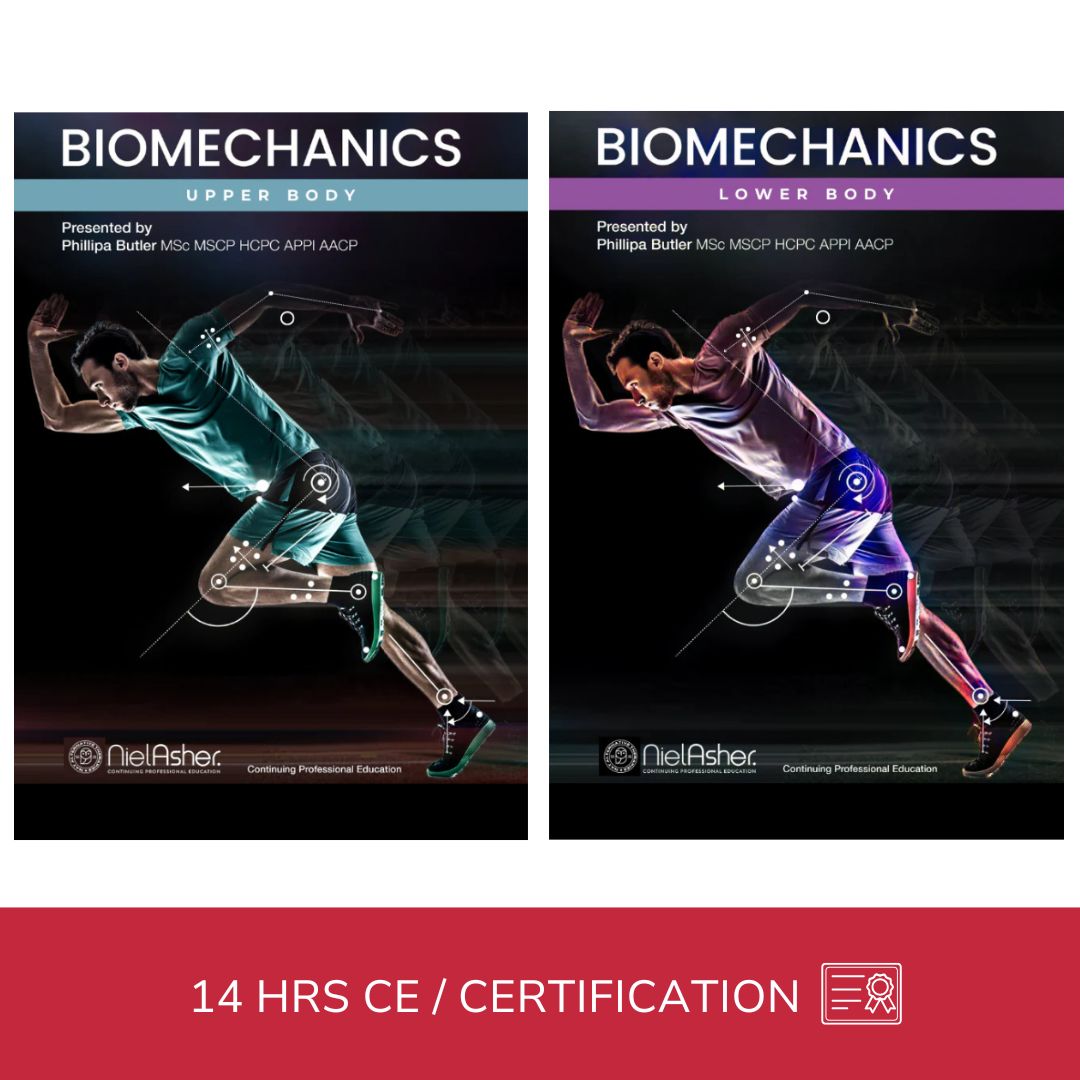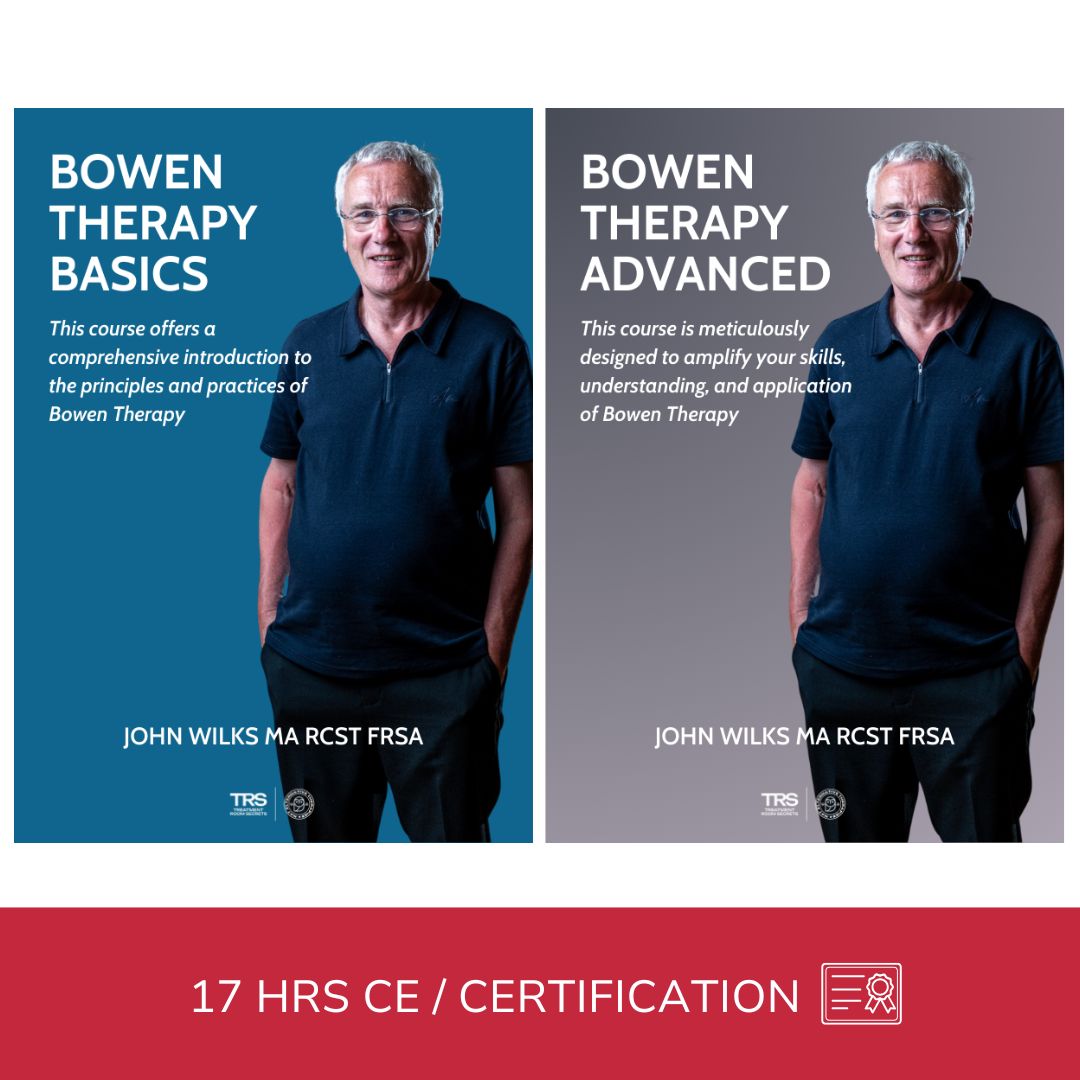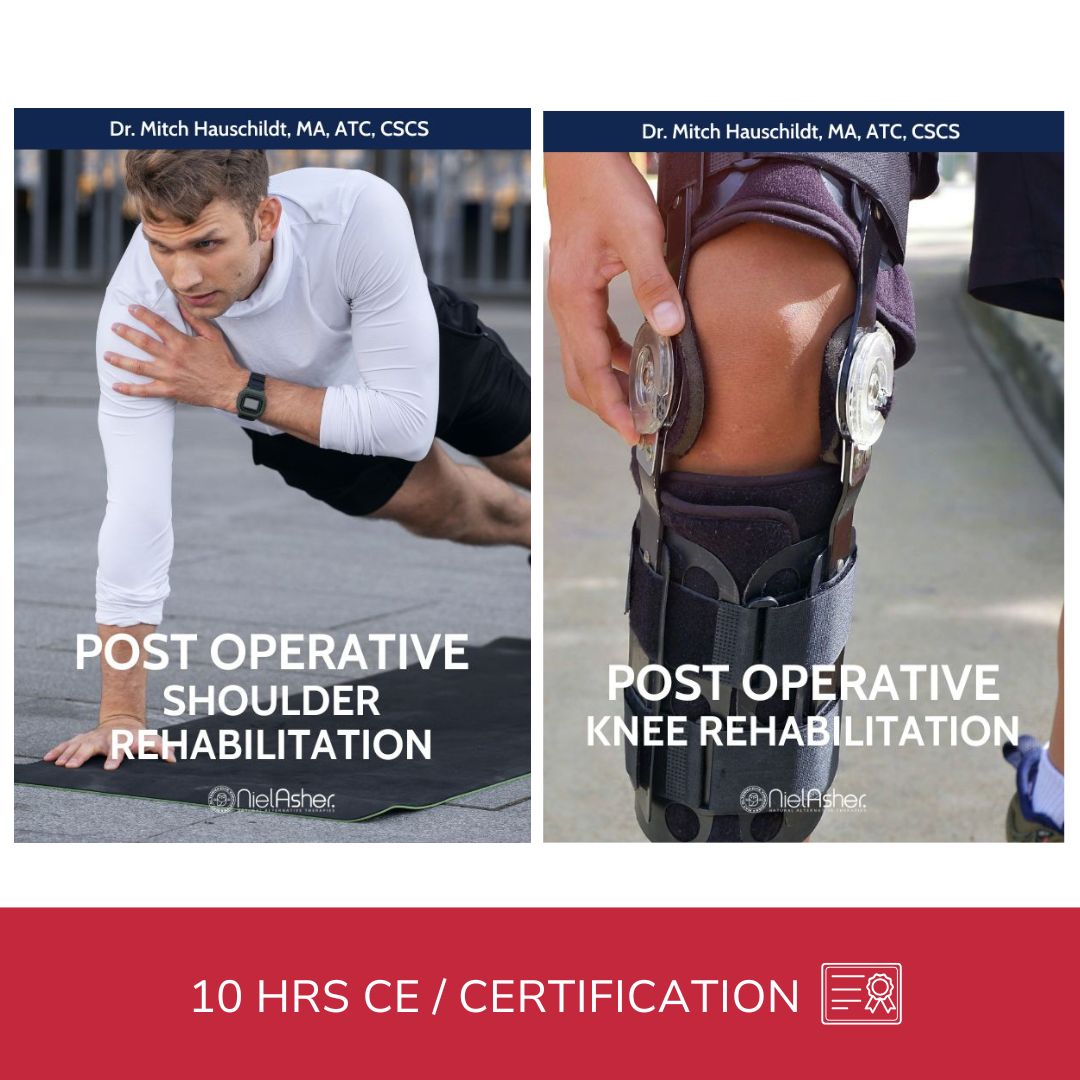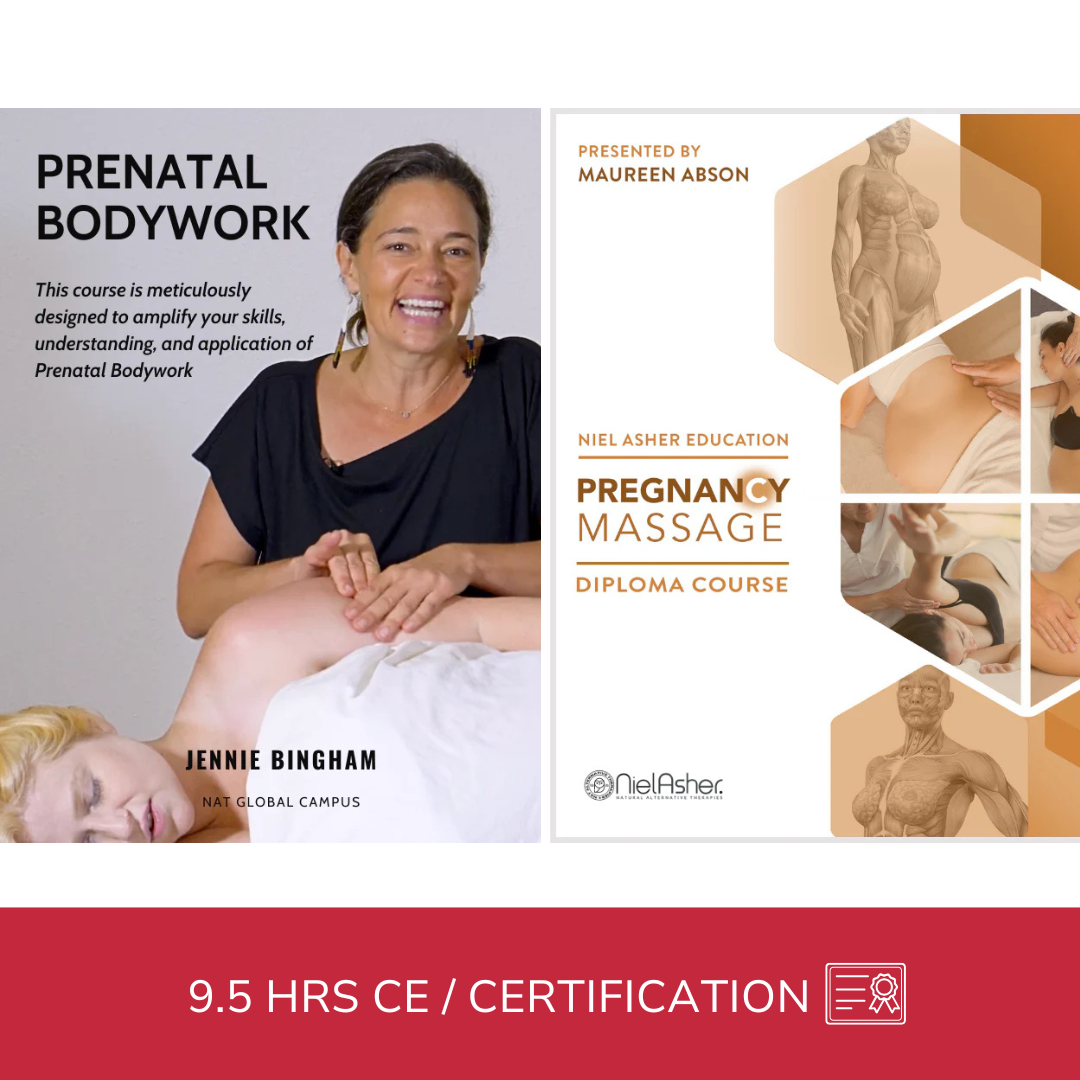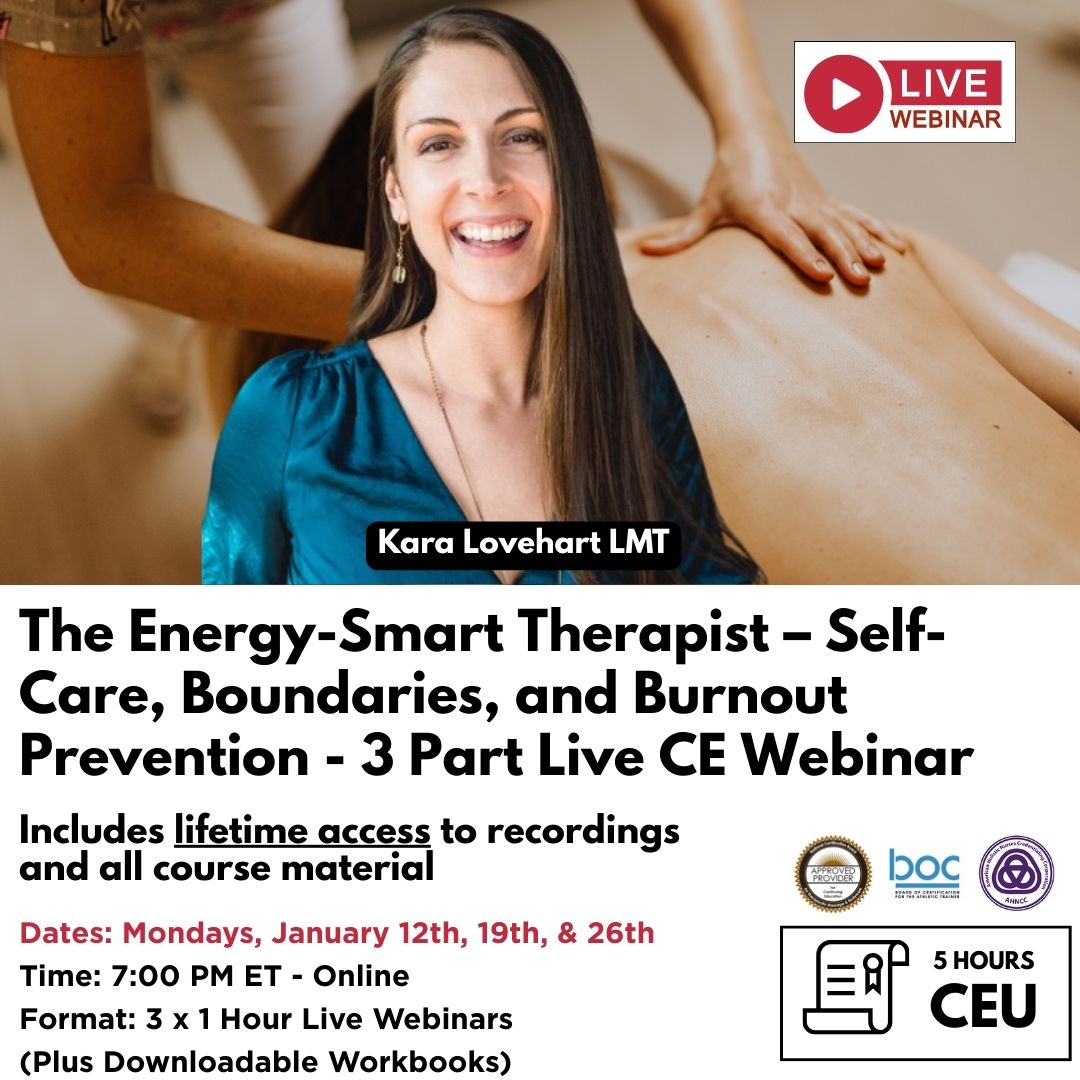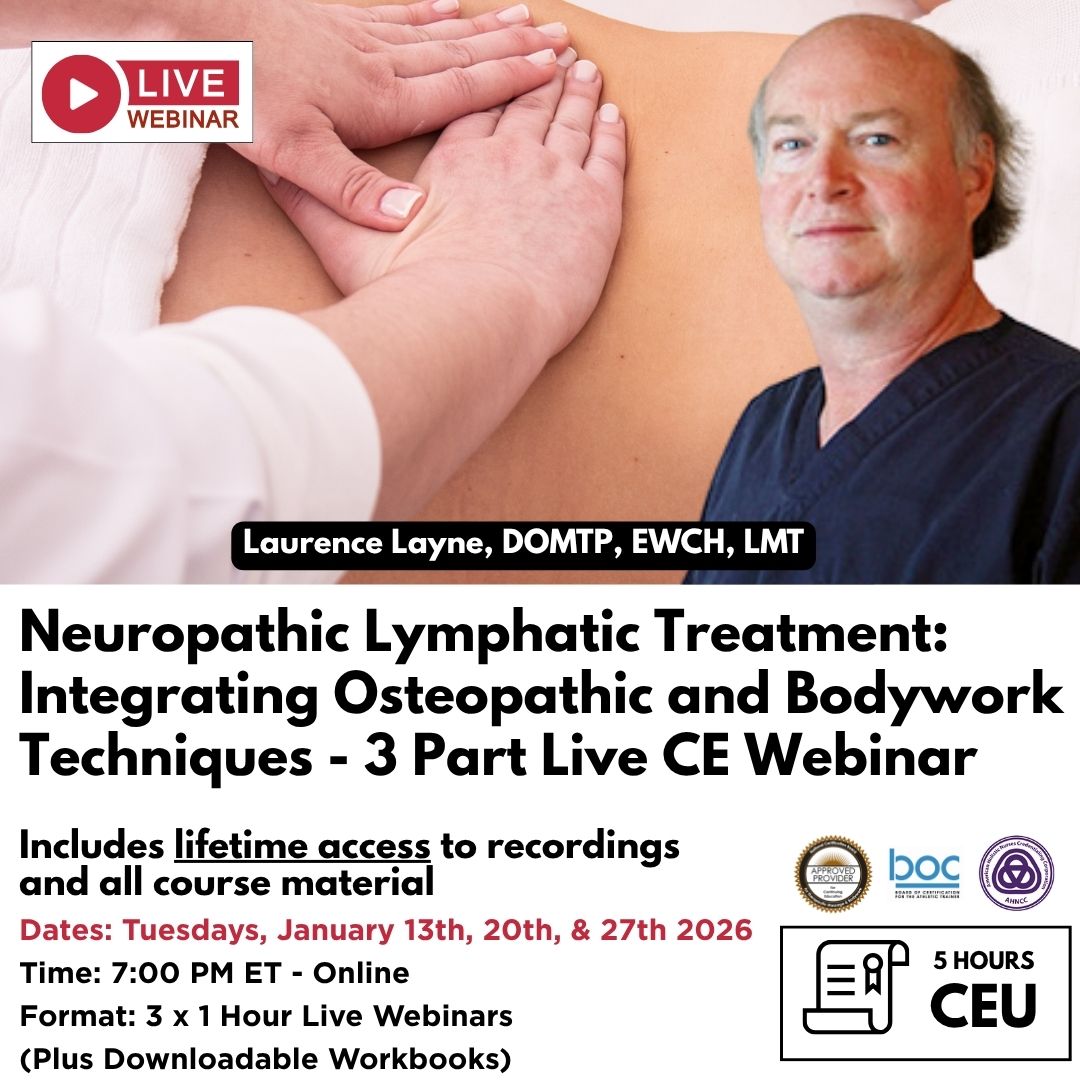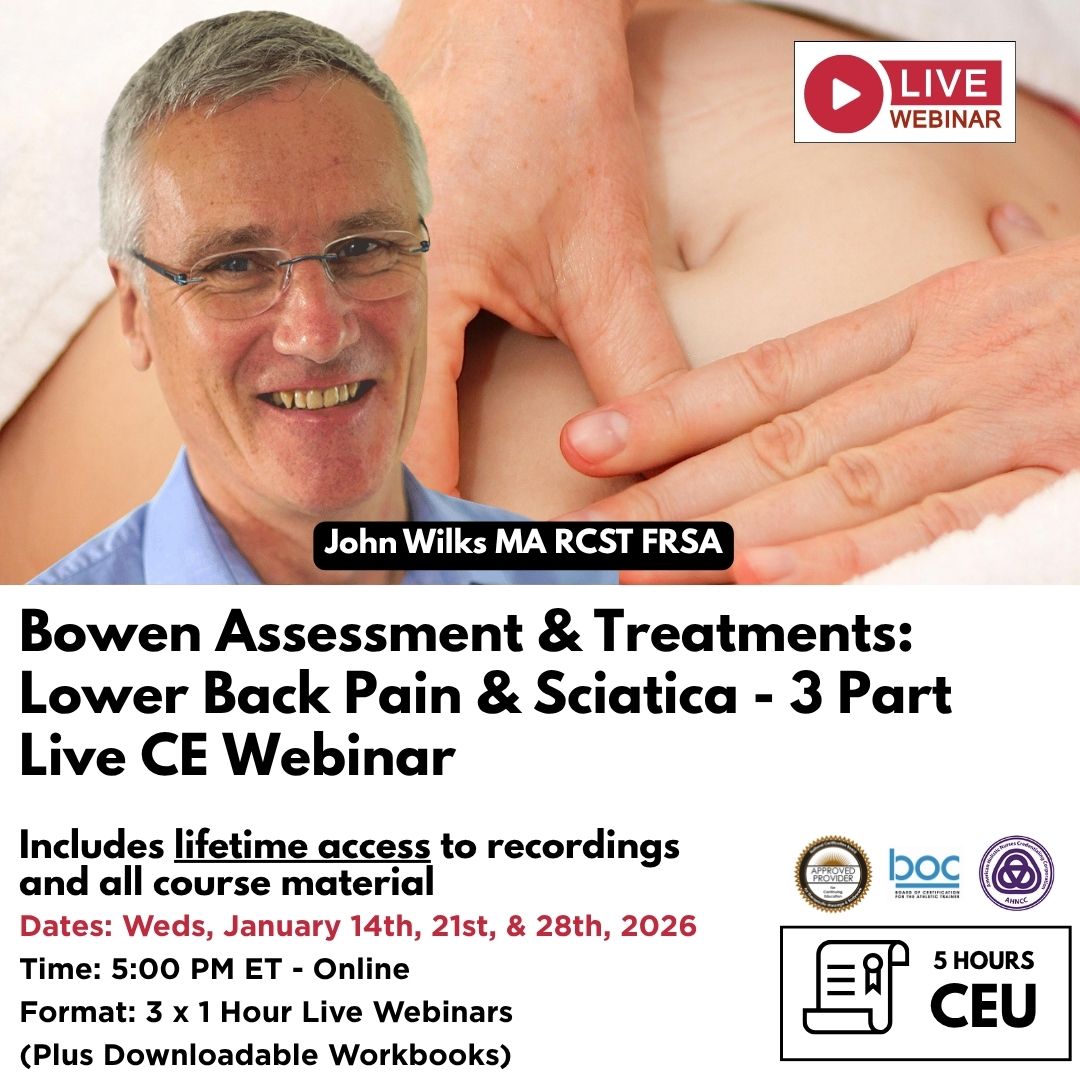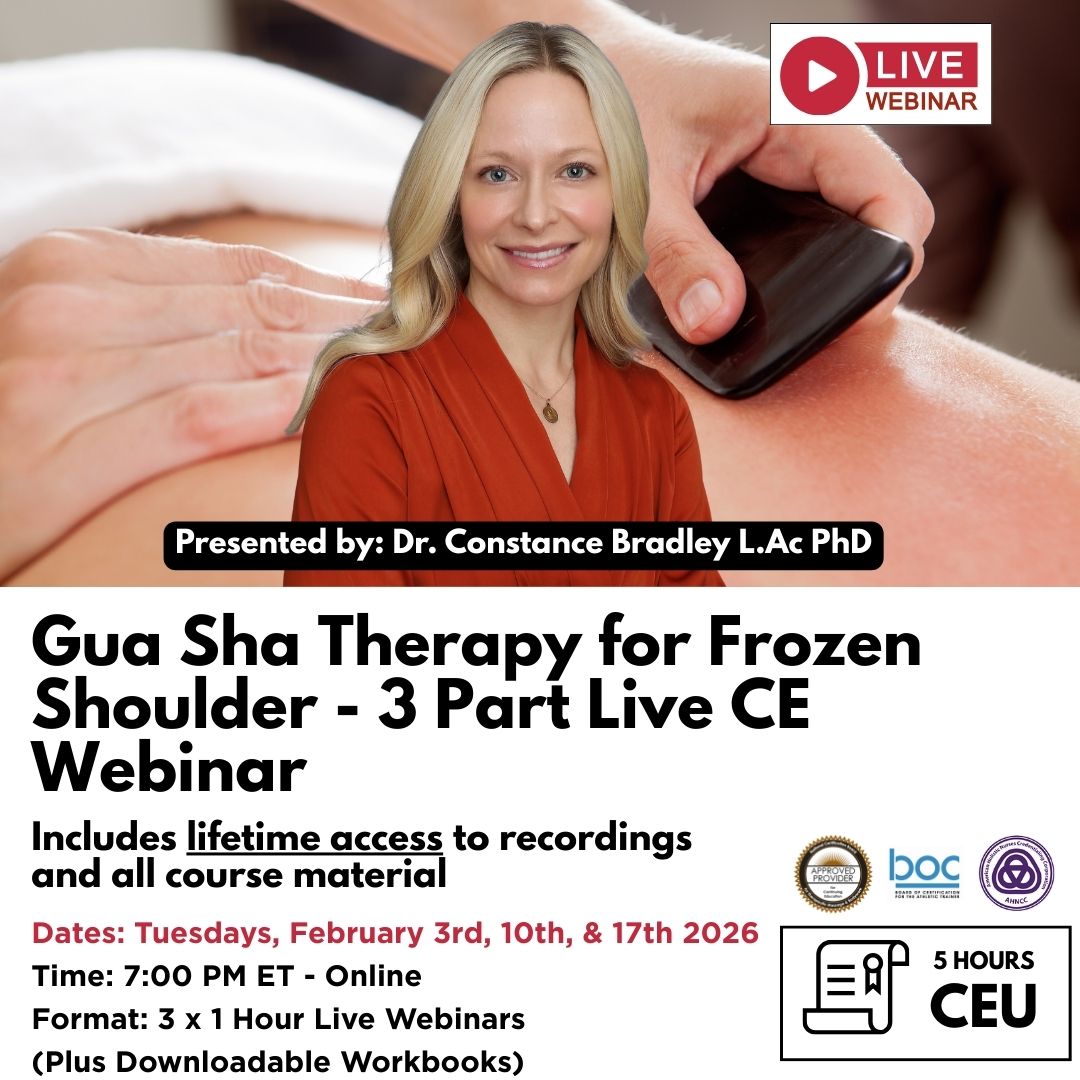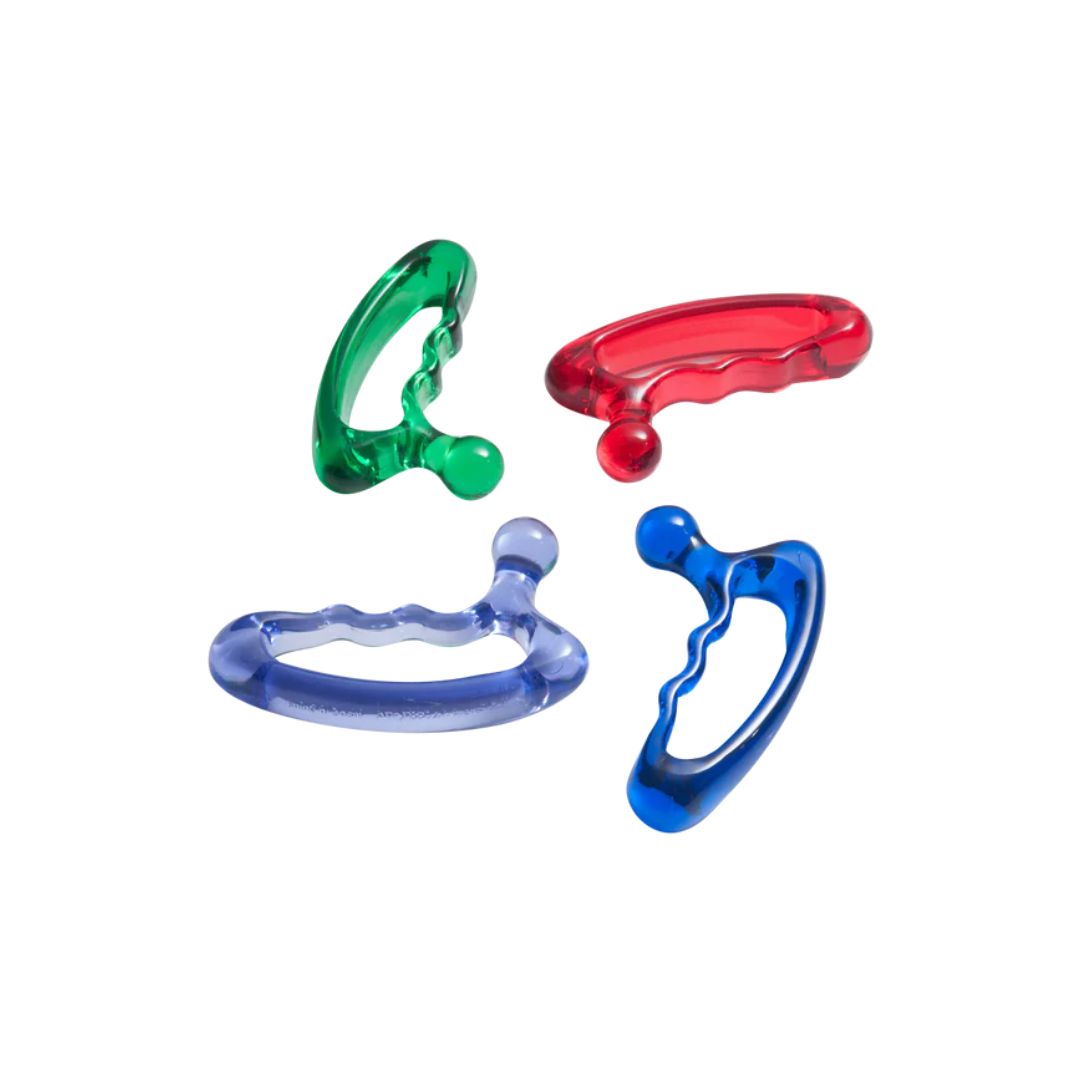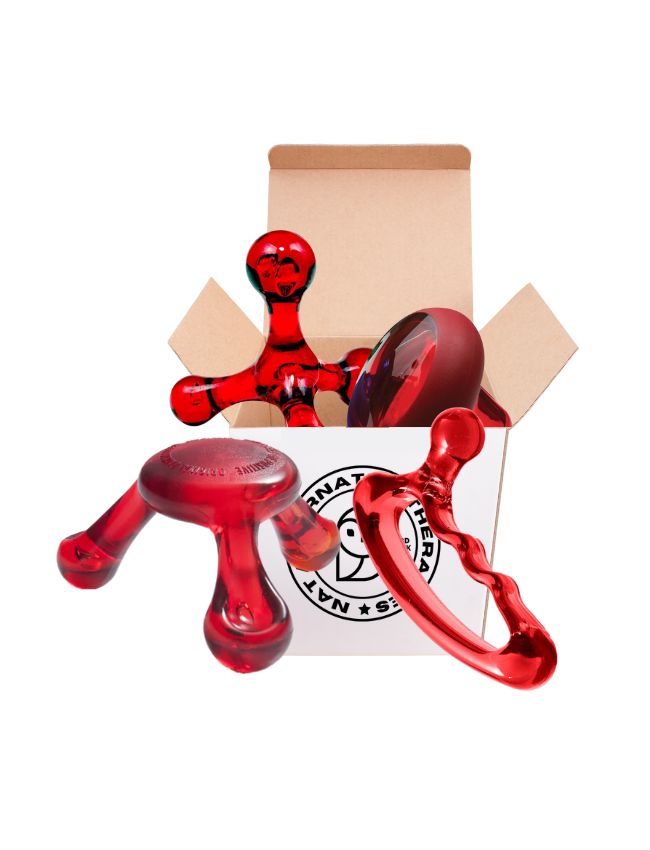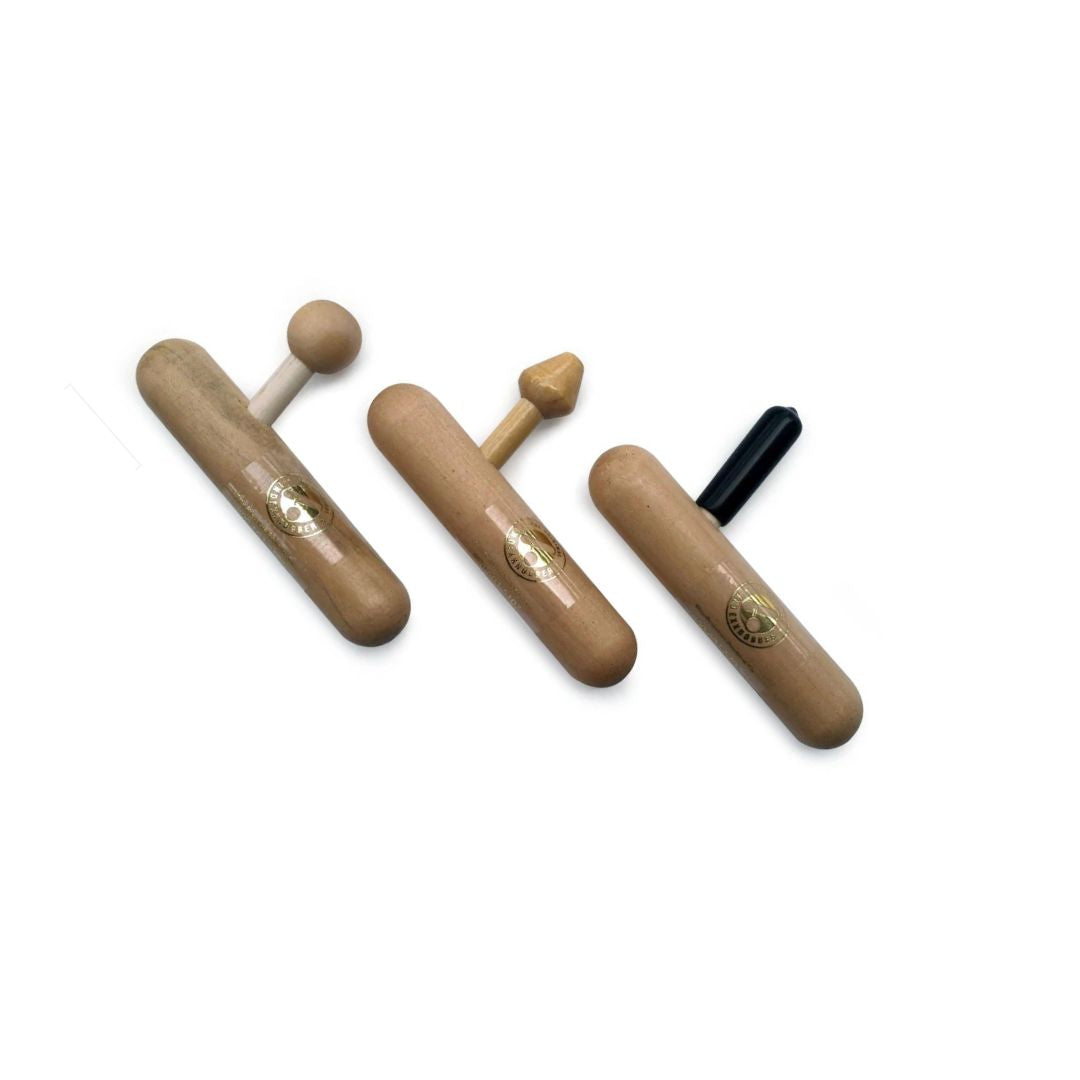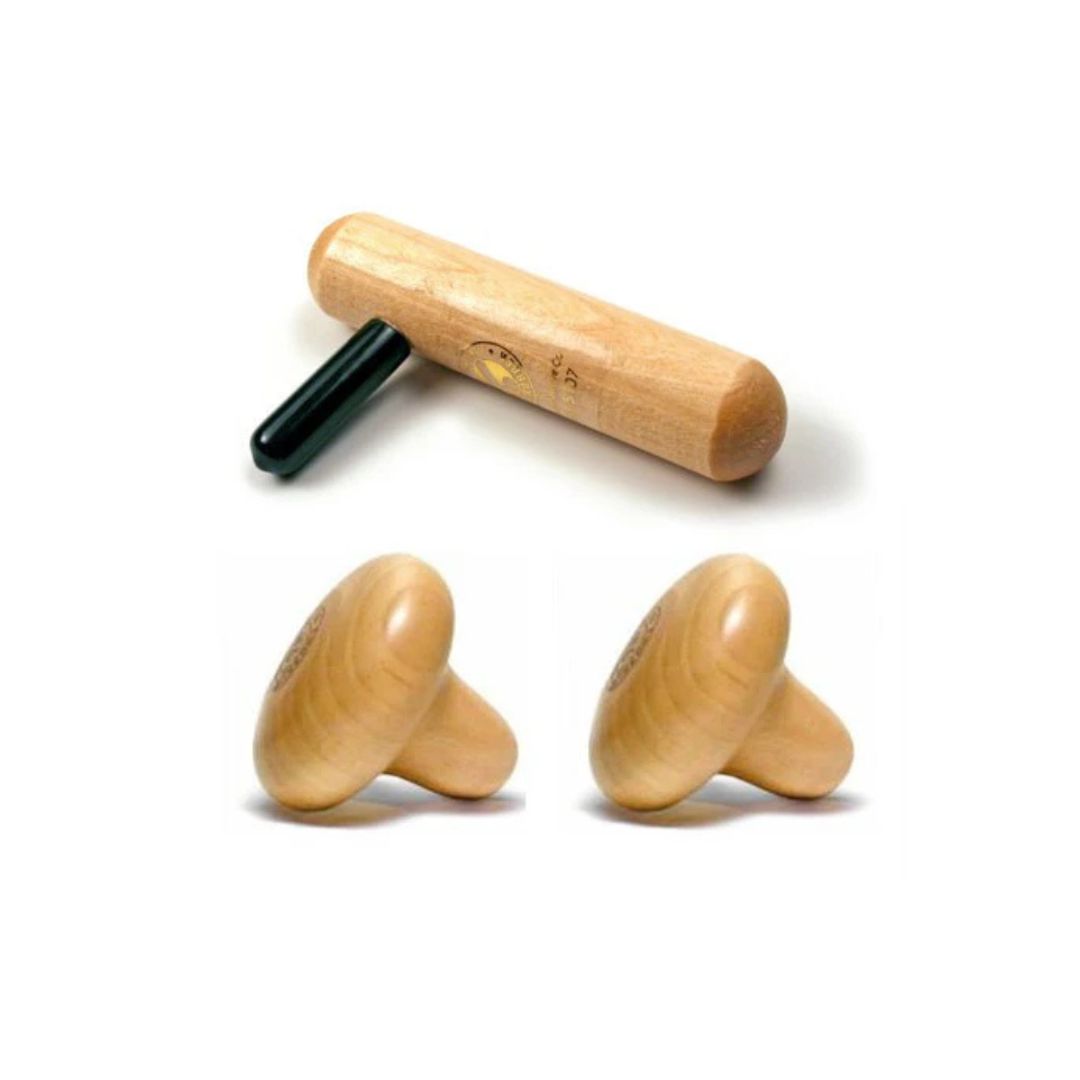Trigger Point Therapy - Transversus Abdominis
Abdominal Pain and Trigger Points - Overview
All abdominal muscles work on a moment-to-moment basis as we move, providing the tension required to translate forces from the lower limbs to the upper limbs.
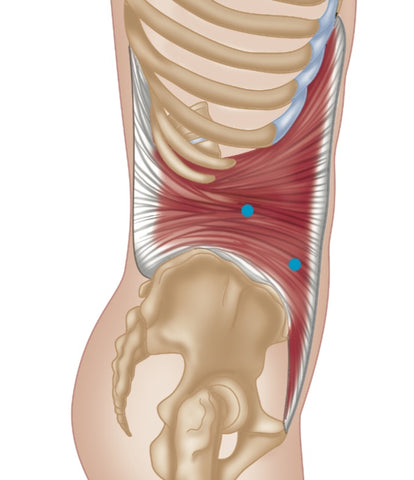
Transversus Abdominis - Common Trigger Point Sites
The transversus abdominis is the deepest of these muscles, and each one (right and left) wraps up the organs horizontally.
Transversus abdominis fascial attachments include the lumbar vertebrae, ribcage, iliac crest, and inguinal ligament. The muscle also connects directly into the linea alba, furnishing a link between the xiphoid process, pyramidalis, and pubic bone.
The transversus abdominis therefore provides essential support for the internal organs, as well as tensional support and lift for the L2–L3 lumbar vertebrae.
Pain from trigger points is typically experienced across the upper abdomen, with a focus on the xiphoid process. Patients can also experience a marked enthesitis along the inferior costal margin.
Coughing is especially distressing.
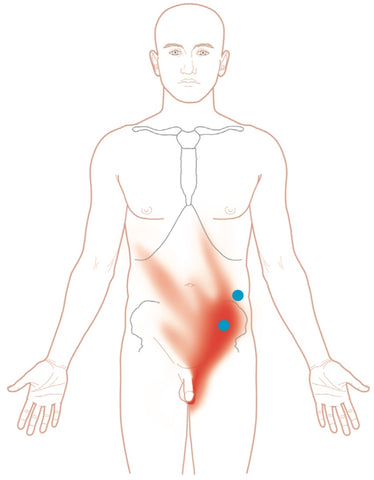
Lower Fibers - Pain Pattern
Origin
Anterior two-thirds of iliac crest. Lateral third of inguinal ligament. Thoracolumbar fascia. Costal cartilages of lower six ribs. Fascia covering iliopsoas.
Insertion
Xiphoid process and linea alba via an abdominal aponeurosis, the lower fibers of which ultimately attach to the pubic crest and pecten pubis via the conjoint tendon.
Action
Compresses abdomen, helping to support abdominal viscera against pull of gravity.
Nerve
Ventral rami of thoracic nerves, T7– T12, ilioinguinal and iliohypogastric nerves.
Basic Functional Movement
Important during forced expiration, sneezing, and coughing. Helps maintain good posture.
Referred Pain Patterns
Costal margin: local quadrant pain, often radiating into anterior abdomen.
Suprapubic: local pain, often radiating medially and inferiorly to testes.
Indications
Groin pain, testicular pain, heartburn, nausea, vomiting, bloating, diarrhea, discogenic pain from the lumbar spine, lower crossed pattern, bedwetting in children.
Causes
Direct trauma (commonly from overexertion during sports), poor sit-up technique, prolonged cross-legged sitting, coughing, emotional stress, may be related to back pain, post-surgical (abdominal).
Differential Diagnosis
Visceral pathology including: renal, hepatic, pancreatic, diverticular disease, colitis, appendicitis, hiatus hernia, peritoneal disease—pelvic inflammatory disease, ovarian, bladder, testicular pathology, e.g. varicocele, nonspecific urethritis.
Connections
External oblique, internal oblique, rectus abdominis, pyramidalis.
Advice
Self-stretch and strengthen to stabilize lumbar spine and support vascular activities. Posture and tone.
Other pages on our website that you might like:
Find a Trigger Point Professional in your area
More Articles About Trigger Points
Dry Needling for Trigger Points
Certify as a Trigger Point Therapist
Trigger Point Therapy Courses / Home Study
NAT Courses - Accelerated Learning
As a manual therapist or exercise professional, there is only one way to expand your business - education!
Learning more skills increases the services that you offer and provides more opportunity for specialization.
Every NAT course is designed to build on what you already know, to empower you to treat more clients and grow your practice, with a minimal investment in time and money.
Best of all, we're always here to offer help and support.
NAMTPT AWARD
We are honored to have received the "Excellence in Education" Award from the National Association of Myofascial Trigger Point Therapists.
Read Full Article
This trigger point therapy blog is intended to be used for information purposes only and is not intended to be used for medical diagnosis or treatment or to substitute for a medical diagnosis and/or treatment rendered or prescribed by a physician or competent healthcare professional. This information is designed as educational material, but should not be taken as a recommendation for treatment of any particular person or patient. Always consult your physician if you think you need treatment or if you feel unwell.
About Niel Asher Education
Niel Asher Education (NAT Global Campus) is a globally recognised provider of high-quality professional learning for hands-on health and movement practitioners. Through an extensive catalogue of expert-led online courses, NAT delivers continuing education for massage therapists, supporting both newly qualified and highly experienced professionals with practical, clinically relevant training designed for real-world practice.
Beyond massage therapy, Niel Asher Education offers comprehensive continuing education for physical therapists, continuing education for athletic trainers, continuing education for chiropractors, and continuing education for rehabilitation professionals working across a wide range of clinical, sports, and wellness environments. Courses span manual therapy, movement, rehabilitation, pain management, integrative therapies, and practitioner self-care, with content presented by respected educators and clinicians from around the world.
Known for its high production values and practitioner-focused approach, Niel Asher Education emphasises clarity, practical application, and professional integrity. Its online learning model allows practitioners to study at their own pace while earning recognised certificates and maintaining ongoing professional development requirements, making continuing education accessible regardless of location or schedule.
Through partnerships with leading educational platforms and organisations worldwide, Niel Asher Education continues to expand access to trusted, high-quality continuing education for massage therapists, continuing education for physical therapists, continuing education for athletic trainers, continuing education for chiropractors, and continuing education for rehabilitation professionals, supporting lifelong learning and professional excellence across the global therapy community.
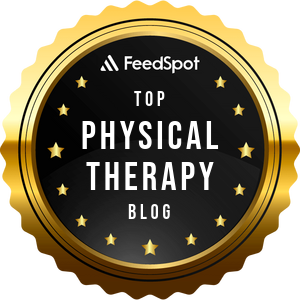
Continuing Professional Education
Looking for Massage Therapy CEUs, PT and ATC continuing education, chiropractic CE, or advanced manual therapy training? Explore our evidence-based online courses designed for hands-on professionals.


